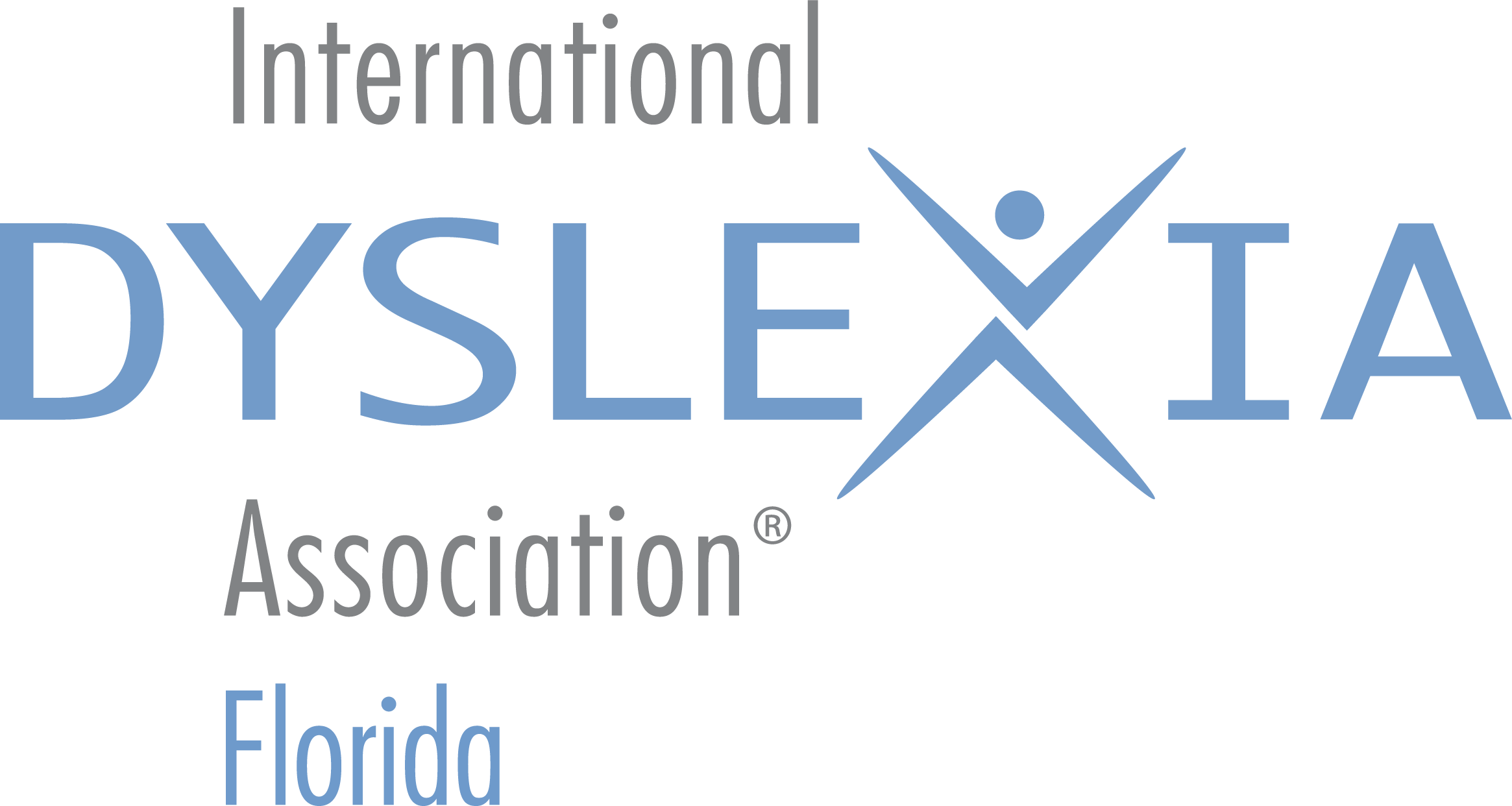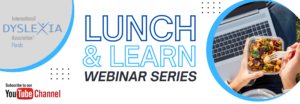Watch Previous Webinars on Our YouTube Channel!
Dyslexia and Structured Literacy: What Every Parent (and Teacher) Should Know
Presented by E. Judith Cohen, ED.D.
This presentation focuses on the definition of dyslexia, characteristics of children with dyslexia, and strategies that parents (and teachers) can provide to support student learning. The definition and importance of Structured Literacy will be discussed. Links to resources provided below.
Presentation resources:
Best Practices in Assessment and Identification of Dyslexia
Presented by Colleen Crooms and Jesse Steif
Join school psychologists and IDA-FL board members Dr. Colleen Crooms, Ph.D, NCSP and Jesse Steif, Ed.S., NCSP as they discuss principles of Dyslexia assessment and identification. Topics will include school classification of Dyslexia vs. private diagnosis, specific skills and assessment instruments, the teacher’s role in Dyslexia evaluation, components of an evaluation, and treatment planning.
From Speech to Print. It’s About Oral Language and Building the Brain for Literacy
Presented by Jan Wasowicz, Ph.D., CCC-SLP
We are biologically wired for oral language, but not for reading and writing. Learn how you can leverage the brain’s organization for the sounds of spoken language to more effectively teach reading and writing. We’ll examine the linguistic underpinnings of word-level reading and writing and explore practical ideas for speech-to-print multi-linguistic instruction, including how to set up and use a sound wall in your classroom.
Presentation resources:
Instruction of Phonology and Orthography for Students with Dyslexia
Presented by Paige C. Pullen, Ph.D.
Teacher knowledge of English phonology and orthography is essential for providing instruction that works for students with dyslexia. In this webinar, participants will learn some of the most important features of English phonology and orthography when teaching students with dyslexia and best practices for instruction of these features.
Morphology Matters: Using Bases and Affixes to Develop Vocabulary
Presented by William Van Cleave
An understanding of morphology, or the meaning parts that comprise words, is valuable for the development of vocabulary as well as spelling and word attack skills. In this re-broadcast of a workshop that the late William Van Cleave
presented at the 2020 PaTTAN Literacy Symposium, Van Cleave engages participants in an introduction to morphological awareness. He first frames the discussion with an understanding of essential terminology and then guides participants through experimentation with words, examining their meaning parts and considering how this affects literacy skills. Participants consider components of an effective morphology-based lesson plan and leave with strategies they can use the very next day with their students .
William Van Cleave (1968-2021) was an internationally recognized speaker with an interactive, hands-on presentation style. William presented on effective teaching practices at conferences and schools both in the United States and abroad since 1995. His most recent projects included consulting with schools as part of a literacy grant in Montana; participating on the MTSS Writing Standards Committee for the State of Pennsylvania; implementing several Trainer of Trainers projects using his sentence structure approach; and writing a series of workbooks and a companion book on developing composition skills to complement his sentence approach. He authored three books, including Writing Matters and Everything You Want To Know & Exactly Where to Find It, as well as a number of educational tools and activities, William served as a classroom teacher, tutor, and administrator in the private school arena at various points in his career.
Presentation resources:
How Language Affects Reading: What Parents and Professionals Need to Know
Presented by Tatyana Elleseff, M.A., CCC-SLP
This webinar is a fantastic professional learning opportunity for all teachers to learn how to support students with dyslexia. It reviews the role of language in the acquisition of reading and explains why children with reading difficulties must be assessed for language deficits. It explains how undetected language deficits can adversely hamper reading interventions causing the students to plateau in their literacy gains. Finally, it offers suggestions regarding which assessments should be considered by parents and professionals for students who exhibit persistent reading difficulties.
Presentation resources:
Comprehension: Strategies that Work
Presented by Lynne Givens, M.Ed.
In this webinar, we unpack this critical reading component of comprehension, the end goal for all reading. We identify eight essential strategies to help all readers become more adept at understanding what they are reading. This information is especially important for our struggling readers, who often need more explicit instruction in comprehension.
Presentation resources:
The Reading Comprehension Blueprint: The Why, The What & A Bit of the How!
Presented by Nancy Lewis Hennessy, M.Ed.
Whether reading by ear or eye, reading comprehension is complex and challenging. Making meaning of text is the
product of multiple language processes, skills and knowledge including word meaning, sentence comprehension,
background knowledge, inference and comprehension monitoring. An understanding of the science of reading provides
guidance for designing and delivering informed instruction. The Blueprint, a master plan aligned with the evidence,
focuses on the acquisition of these crucial contributors to comprehension by using effective routines, strategies and
activities. Join us and Nancy Hennessy, the author, as we explore the foundations of The Reading Comprehension
Blueprint
About the Author:
Nancy currently works as a literacy consultant. She is an experienced teacher and administrator who has worked across the grade levels in both regular and special education. While in public schools, she provided leadership in the development of professional learning systems for all educators, innovative programming for special needs students and a statewide revision of special education code. She is a former Wilson Language Lead Trainer and National Trainer for Language Essentials for Teachers of Reading and Spelling (LETRS). Nancy has and continues to design and deliver keynotes, as well as virtual and live workshops and training courses. Most recently, Nancy has focused on virtual, and in-person professional learning opportunities related to reading comprehension. Nancy co-authored Module 6 of LETRS, Digging for Meaning: Teaching Text Comprehension (2nd edition) with Louisa Moats. Her chapter, Working with Word Meaning: Vocabulary Instruction, is in the fourth edition of Multisensory Teaching of Basic Skills. Most recently, Nancy authored the book, A Blueprint for Reading Comprehension Instruction: Helping Students Make Meaning from Text (2020). Nancy has held various positions on varied boards including serving as president of the International Dyslexia Association (IDA) and as a member of the National Joint Committee for Learning Disabilities. She is an honorary member of the Delta Kappa Gamma Society and the 2011 recipient of IDA’s Margaret Rawson Lifetime Achievement Award.
Share this page with your friends…




